40 лет Санкт-Петербургской типологической школе - [84]
«Then again, it was written in a great hurry»,
Me völi seki (1927 voyn) Budapeštyn
I was then (1927 year-INESS) Budapest-iness
zil'a-eštöda dissertacijaös
exert-finish-PRES-1SG thesis-ACC
«I was then (in 1927) in Budapest trying hard to finish my thesis».
<…>Ses'an' menam möd n'el'uc'ki:
from.that I-GEN other blemish
«Because of that I made another error:»
menam komi jöztö, Komi mutö vyvti jona
I-GEN Komi people-ACC Komi land-ACC too strongly
idealizirujts'öma i
dealize-REFL-PERF-3SG
«It came out that I (had) idealized the Komi people and land too much».
Kritilgas gögörvoömaös': me pö c'olöm bytt'ö
critics understand-PERF-3PL I Quot greeting as.if
vis'tala komi kulakly, komi bedn'akly i
say-PRES-lSG Komi kulak-DAT Komi poor.people-DAT and
bydönly
everyone-DAT
«The critics seem to have thought that Iwas greeting the Komi kulaks, the Komi poor people and everyone».
Mees'kö ac'ym kösji žuny: stavudžalys' Komi jöz…
I maybe myself want-PST-lSG say-INF all working Komi people… «I myself would have wanted to say: to the entire working Komi people».
In the first case, the agent is not expressed, but the construction is impersonalł, thus the responsibility is to some extent hidden and avoided. The pluperfect with the copula völi has here apparently the same function as the past-in-past of the Western European («Standard Average European») pluperfect. In the second example, the reflexive suffix expressly removes the responsibility of the author, the event just happened without his volition. The objects are retained, as is shown by the morphological markers. In the third example, the authorship is shown, but again demoted by the genitive form, although the verb form is the perfect without the reflexive suffix. Thus it only shows the resulting state. The critics' part in this is based on the result, and the perfect of the verb «understand» has a clear evidential meaning: the critics must have understood the author's words in a certain way. The author tries to avoid their interpretation by using the quotative particle pö. The last predicate in the simple past kösji «I wanted», shows what the author did intentionally and in full consciousness.
The impersonal constructions based on the participle — öm(a) are, as was noted in the beginning, neutral. One of the fullest descriptions of Komi from the XDCth century states:
Das Passiv kann zwar durch eine besondere Classe der abgeleiteten Zeit-wörter ausgedruckt werden, die Verba Media, aber diese können auch reflexive, sogar active Bedeutung haben. Deutlicher und zugleich fehlende Zeitformen ersetzend ist die Umschreibung mit dem ersten und zweiten Tempus des Zeitworts «sein» und dem aus lony (werden) für dasselbe ge-wonnenen Future, verbunden mit dem siebenten Verbalnomen auf — ma <…> Das erste Tempus des Zeitworts «sein» kann als Copula in affirmative Sätzen natiirlich auch fehlen <…> gižöma (es ist geschrieben), <…> em-bur kod' hod yb vylyn dz'eböma völy «Wie ein Schatz, welcher auf dem Felde vergraben war» [Wiedemann 1884:201].
That is, there is no formally marked passive in Komi, and the analytic constructions with instrumental agents that appear in grammars are obvious loan translations from Russian (E. A. Cypanov in [Fedjunjova 2000: 282]). In earlier grammatical descriptions, e. g. [Lytkin 1955], such constructions are claimed to represent genuine Komi passive forms. The tradition has been faithfully continued until today, and has taken root in modem written Komi (see e. g. [Ludykova 1993]).
As in the historical development of languages with habere perfects, a predilection of the possessive impersonal construction to be used with transitive verbs is apparent in Komi, at least with respect to the frequencies of transitive and intransitive verbs. With transitives, it is often difficult to decide whether the genitive should be interpreted purely as the possessor of an item, or as the agent responsible for the action; it can be both. P. Doronin, a prolific writer who began publishing in the 1930s used the construction with transitives, verbs both with and without an object. In all cases, the interpretation as an evidential is possible, since it often coincides with the basic meaning of the forms with — oma, that of a state resulting from an event/action in the past:
Jenlön es'kö koz'nalöma taj menö ydžyd
God-GEN maybe present-PERF3SG PRTCI-ACC great
vyn-ebösön, <…> strength.strength-INSTR
«God must have given me a lot of strength <…>» [Doronin 1995: 68]; texts from the 1930s reprinted.
Another example shows the verb «work», which is certainly active, but hardly transitive:
Tydalö, Mikollön tadzsö udžalöma
appear-PRES3SG Mikol-GEN thus-ACC work-PERF3SG
«It seems that Mikol has worked in this way» [Doronin 1995: 87].
In the context, the father is inspecting the ploughing done on his field. Dissatisfied, he draws the conclusion that his son must have been at work. The adverb tadz «thus» is suffixed with — sö, marker of 3rd person singular definiteness and accusative, is also used in Komi as an emphatic particle, comparable to the Russian

Книга Гасана Гусейнова «История всего: лекции о мифе» — увлекательное чтение об античности и не только. В ее основе лежат лекции, прочитанные для издательского дома «ПостНаука». В них, как и в других работах автора, далекое прошлое вступает в диалог с настоящим. Прожорливый Кронос, трусливый Зевс, капризный Эрот уже не просто герои мифов — они наши современники, которые заново открывают телесность и пол, вдохновляют панков и отвечают на ключевые вопросы современной культуры.
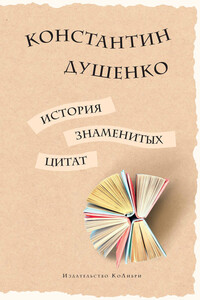
Популярные цитаты – одна из важных частей культуры; нередко это формулы нашего мышления. Знать, откуда они появились и что они означали в разное время, – дело вовсе не лишнее. Позволю себе предположить, что даже осведомленный читатель узнает немало нового о том, что он считал хорошо известным. А кроме того, выяснение этого – занятие необычайно увлекательное… К. Душенко.
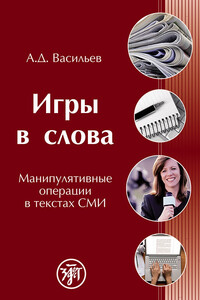
Монография посвящена манипулятивному использованию слов в текстах российских средств массовой информации. Для иллюстрации дискурсивных процессов представлены и проанализированы многочисленные примеры.
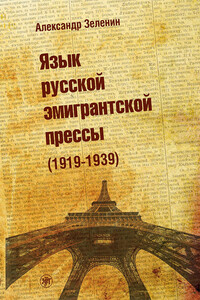
Книга отражает результаты диссертационного исследования, основанного на материале богатейших зарубежных архивов. Адресована специалистам в области языка прессы, языка и культуры русского зарубежья и всем, кто интересуется историей русской эмиграции первой волны. Издается в авторской редакции.
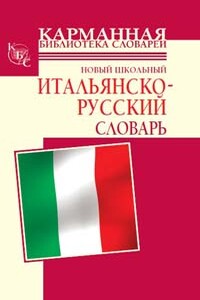
Словарь, созданный русскими и итальянскими специалистами, знакомит читателей с новыми словами, их различными значениями и оттенками, а также случаями употребления, которые можно активно использовать в повседневной жизни.Более 1000 слов и текстовых примеров, позволяющих раскрыть особенности синтаксиса современного итальянского языка.
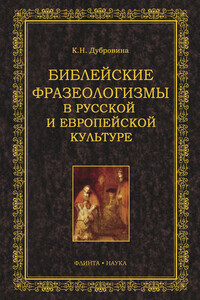
Книга представляет собой научный труд в популярном, доступном изложении. В ней рассказывается о библейских фразеологизмах (образных выражениях, пословицах, поговорках, афоризмах, крылатых изречениях) и библеизмах – словах в русском и других европейских языках, а также об отражении библейских образов, сюжетов, идей, правовых и морально – этических норм и воззрений древнего Востока в культуре народов, исповедующих христианскую религию. Особое внимание уделяется русской национальной культуре: использованию библейских слов и выражений в русском языке, в художественной и публицистической литературе, в изобразительном и музыкальном искусстве.Для гуманитариев разных специализаций: филологов, историков, культурологов, искусствоведов, школьных учителей, преподающих основы христианской (православной) культуры, а также для самого широкого круга читателей, интересующихся историей русского языка и культурой русского и европейских народов.Книга создана на кафедре общего и русского языкознания филологического факультета Российского университета дружбы народов (РУДН) при поддержке Российского государственного научного фонда (РГНФ).